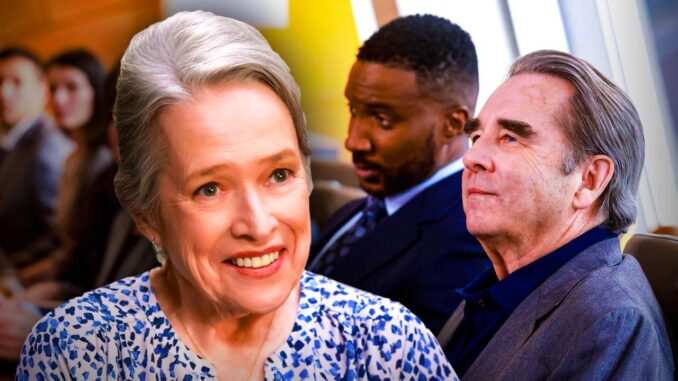
Beyond “Matty”: Kathy Bates’s Clarion Call for Authentic Older Women on Screen
Kathy Bates, with her formidable talent and undeniable presence, has become a beacon of hope for actresses navigating the treacherous waters of Hollywood ageism. Her voice, resonating with experience and passion, rings out clear: older women deserve more than the reductive roles they’re often relegated to. Her comments, particularly concerning the dismissive “Matty” label often applied to older female characters, strike at the heart of the issue: the industry’s failure to recognize the depth, complexity, and continued relevance of women as they age.
The “Matty” archetype, a caricature often portrayed as eccentric, meddling, or simply invisible, is a symptom of a larger problem: the erasure of older women from the narrative. These characters, relegated to the periphery of the story, rarely possess agency, inner lives, or narratives of their own. They exist primarily to serve the younger protagonists, offering sage advice, baking cookies, or becoming the butt of a joke about dentures or forgetfulness. While these roles might provide a paycheck, they do little to showcase the breadth of experience and emotional intelligence that older women possess.
Bates understands that age is not a monolith. It’s a tapestry woven with the threads of triumphs, failures, loves, and losses. It’s a period of life brimming with possibilities, challenges, and the potential for remarkable growth. To confine older actresses to simplistic, one-dimensional “Matty” roles is not only disrespectful but also a disservice to the audience. It denies them the opportunity to connect with characters who reflect the realities of aging with honesty and authenticity.
The demand for nuanced portrayals of older women goes beyond mere representation. It’s about challenging the prevailing societal narrative that equates youth with value and equates aging with decline. Bates, in her outspokenness, challenges the industry to dismantle this archaic paradigm and embrace the richness and diversity of the female experience across the lifespan.
Her own career serves as a powerful counter-narrative to the “Matty” trope. From her Oscar-winning performance in “Misery” to her nuanced portrayal of a resilient woman battling cancer in “About Schmidt,” Bates has consistently defied expectations, proving that older actresses can command the screen with their power and vulnerability. She has shown that audiences are hungry for stories that explore the complexities of aging, the beauty of resilience, and the continued capacity for growth and transformation.
The impact of authentic portrayals of older women extends far beyond the realm of entertainment. Seeing themselves reflected on screen empowers women to embrace their aging with confidence and pride. It challenges the pervasive societal pressure to conform to unrealistic standards of beauty and youth, fostering a sense of self-acceptance and celebrating the wisdom and strength that comes with age.
Moreover, these portrayals offer valuable lessons for younger generations, challenging them to re-evaluate their perceptions of aging and to recognize the inherent worth and contributions of older adults. By showcasing the continued vibrancy and relevance of older women, we can foster intergenerational understanding and create a more inclusive and equitable society.
Kathy Bates’s call for more authentic roles for older women is not simply a plea for better representation in Hollywood. It’s a call for a fundamental shift in perspective – a recognition that aging is not a period of decline, but a stage of life filled with potential, complexity, and enduring relevance. It’s a call to move beyond the limiting “Matty” archetype and embrace the full spectrum of the older female experience, enriching our narratives and reflecting the rich tapestry of human life. Her voice, amplified by her talent and experience, serves as a powerful reminder that the stories of older women are not just worth telling, they are essential to understanding the human condition. The industry must listen, and more importantly, it must act. The world deserves to see the full, multifaceted beauty of aging women on screen, not just caricatures, but vibrant, complex, and undeniably real characters who reflect the richness and wisdom of a life well-lived.
